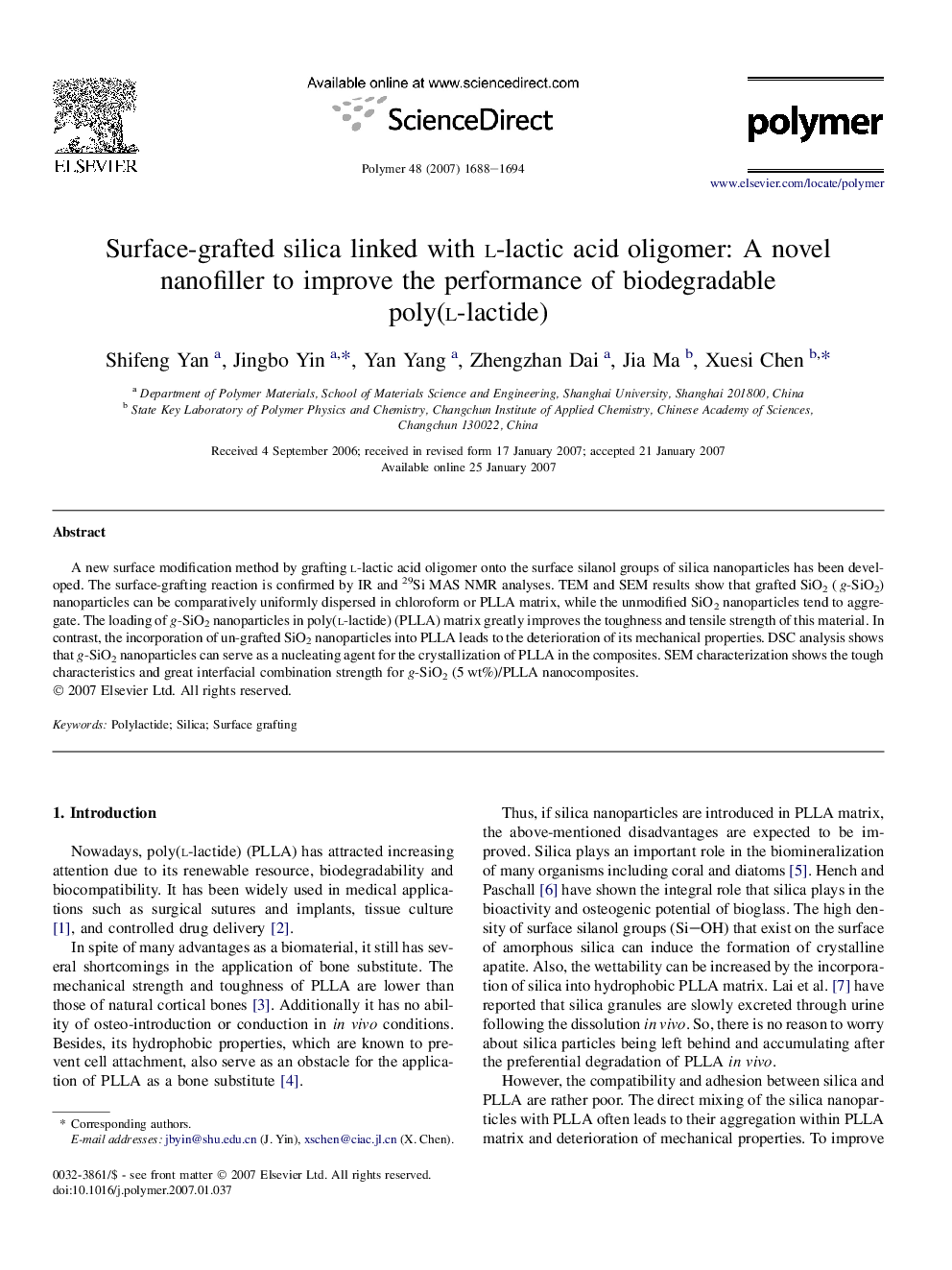| Article ID | Journal | Published Year | Pages | File Type |
|---|---|---|---|---|
| 5186096 | Polymer | 2007 | 7 Pages |
A new surface modification method by grafting l-lactic acid oligomer onto the surface silanol groups of silica nanoparticles has been developed. The surface-grafting reaction is confirmed by IR and 29Si MAS NMR analyses. TEM and SEM results show that grafted SiO2 (g-SiO2) nanoparticles can be comparatively uniformly dispersed in chloroform or PLLA matrix, while the unmodified SiO2 nanoparticles tend to aggregate. The loading of g-SiO2 nanoparticles in poly(l-lactide) (PLLA) matrix greatly improves the toughness and tensile strength of this material. In contrast, the incorporation of un-grafted SiO2 nanoparticles into PLLA leads to the deterioration of its mechanical properties. DSC analysis shows that g-SiO2 nanoparticles can serve as a nucleating agent for the crystallization of PLLA in the composites. SEM characterization shows the tough characteristics and great interfacial combination strength for g-SiO2 (5Â wt%)/PLLA nanocomposites.
